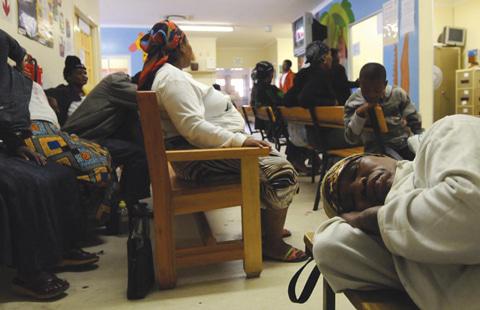Despite legal protections and court rulings, the reality on the ground often falls short. Many migrants still face discrimination and denial of healthcare services in public facilities. This not only violates their rights but also poses a significant public health risk, as untreated illnesses can spread and affect the broader population.
Efforts to combat medical xenophobia and ensure equal access to healthcare for all must be a priority for the South African government and healthcare providers. This includes training healthcare workers on the rights of migrants, implementing anti-discrimination policies, and holding accountable those who deny care based on nationality or documentation status.
As the country continues to grapple with the challenges of providing quality healthcare to all its residents, regardless of their background, it is essential to remember that healthcare is a human right that should be accessible to everyone in need.
By addressing the root causes of medical xenophobia and upholding the rights of migrants, South Africa can move towards a more inclusive and equitable healthcare system that benefits all its residents.
It is crucial for civil society organisations, healthcare providers, and government officials to work together to address these issues and ensure that everyone in South Africa has equal access to healthcare services when they need them most.
As the country navigates the complexities of migration and healthcare, it is essential to remember the humanity and dignity of all individuals, regardless of their nationality or legal status. By upholding these values, South Africa can build a more just and compassionate society for all who call it home.
South Africa’s National Health Act, specifically section 4(3), guarantees free primary healthcare services to children under six and pregnant women at state-funded clinics. This provision excludes individuals covered by medical aid schemes, ensuring that those without financial means are not denied access to essential healthcare services. This significant provision has been hailed as a victory for the right to health and the dignity of all individuals in South Africa.
Chapman, a prominent advocate for healthcare rights, emphasizes the importance of this legislation in promoting equitable access to healthcare for vulnerable populations. The provision ensures that the most vulnerable members of society, such as young children and pregnant women, receive the necessary medical attention without financial barriers.
However, there is a growing call for a more inclusive healthcare policy in South Africa. Manyusa, a healthcare policy expert, stresses the need for a health policy that aligns with the principles of the country’s Constitution. This includes ensuring equal access to healthcare for all individuals, regardless of nationality or documentation status.
Manyusa advocates for a policy framework that upholds the values of democracy, equality, and human dignity in the healthcare system. By prioritizing inclusivity and non-discrimination, South Africa can better fulfill its commitment to promoting the health and well-being of all its citizens.
In conclusion, the provision of free primary healthcare services to children under six and pregnant women at state-funded clinics is a critical step towards achieving universal healthcare coverage in South Africa. However, there is a pressing need for a more inclusive healthcare policy that reflects the country’s constitutional values and ensures equal access to healthcare for all individuals. By prioritizing equity and non-discrimination, South Africa can build a more resilient and inclusive healthcare system that serves the needs of all its citizens.








